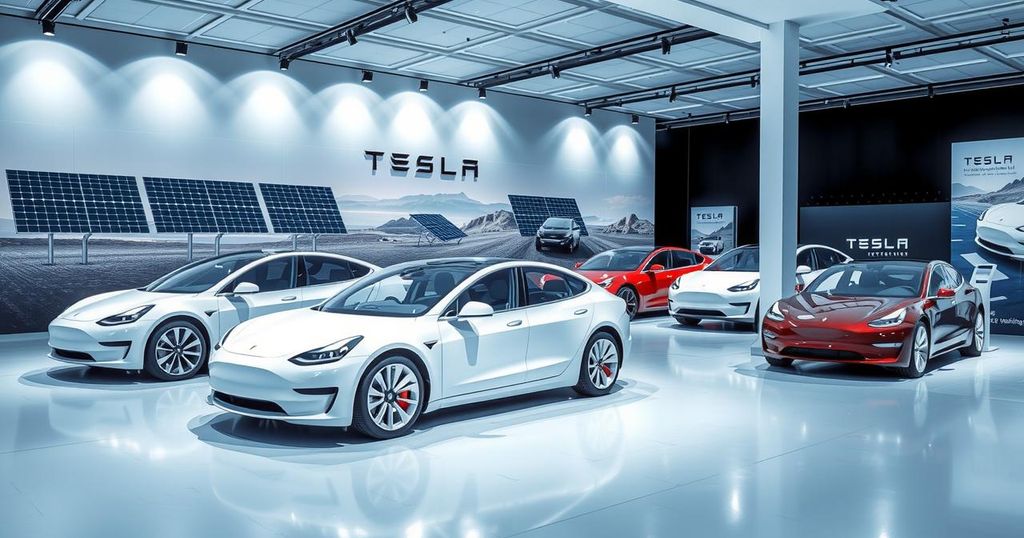Tesla’s Upcoming Launch in Saudi Arabia: Challenges and Opportunities

Tesla is set to launch in Saudi Arabia on April 10, indicating a healing of past tensions with the government. Despite showcasing its tech innovations, the company faces significant challenges, including declining European sales, intense competition, and a limited EV market share in Saudi Arabia.
Tesla gears up for its launch in Saudi Arabia, scheduled for April 10 in Riyadh, marking a resolution of past tensions with the Saudi government. This development follows a fallout related to Elon Musk’s failed attempt to take Tesla private in 2018, which included a controversial tweet about having funding secured from the Saudi Public Investment Fund (PIF). This claim led to a lawsuit from investors after the bid did not materialize, making public exchanges between Musk and PIF’s Yasir al-Rumayyan during the legal proceedings.
The upcoming event will showcase Tesla’s full model lineup, emphasizing solar-powered products, autonomous driving features, AI advancements, and robotics innovations, with specific highlights including the Cybercab and the Optimus humanoid robot. The event’s promotional material invites attendees to express interest in various Tesla models, aiming to engage potential customers directly and generate excitement.
Despite the anticipated launch, Tesla faces significant market challenges, particularly highlighted by a recent decline in European sales, dropping by 42.6% so far this year. Recent controversies surrounding Musk’s actions have contributed to this decline, alongside stiff competition from Chinese EV manufacturers like BYD and domestic market obstacles, as electric vehicles make up just 1% of total car sales in Saudi Arabia.
Additionally, Saudi Arabia’s PIF is a major backer of Lucid Group, a direct competitor in the EV market. The kingdom is exploring the establishment of Tesla’s factory but initially, Musk denied these discussions. There are signs of market saturation with established electric vehicle offerings from rivals, and slow overall EV uptake due to economic factors favoring traditional gasoline vehicles.
Sales projections present a grim picture for EVs in the region, where petrol is relatively inexpensive, making gasoline vehicles more appealing. Reports suggest that the road to EV market acceptance in Saudi Arabia is impeded by consumer habits favoring ICE vehicles and limited charging infrastructure, although ongoing developments are expected to improve this over time.
Overall, while the launch could mark a promising step for Tesla in the region, the company’s path to success in Saudi Arabia will be fraught with challenges given the current market landscape and consumer preferences.
Tesla’s entry into the Saudi Arabian market on April 10 signifies a crucial move for the company, underscored by a resolution of previous conflicts with the Saudi government. However, significant roadblocks remain, including stiff competition from established brands, a prevailing preference for gasoline vehicles, and the current slow growth of the EV market in the region. The event aims to promote Tesla’s technology and engage potential customers, but overcoming entrenched market challenges will be essential for long-term success.
Original Source: www.team-bhp.com





